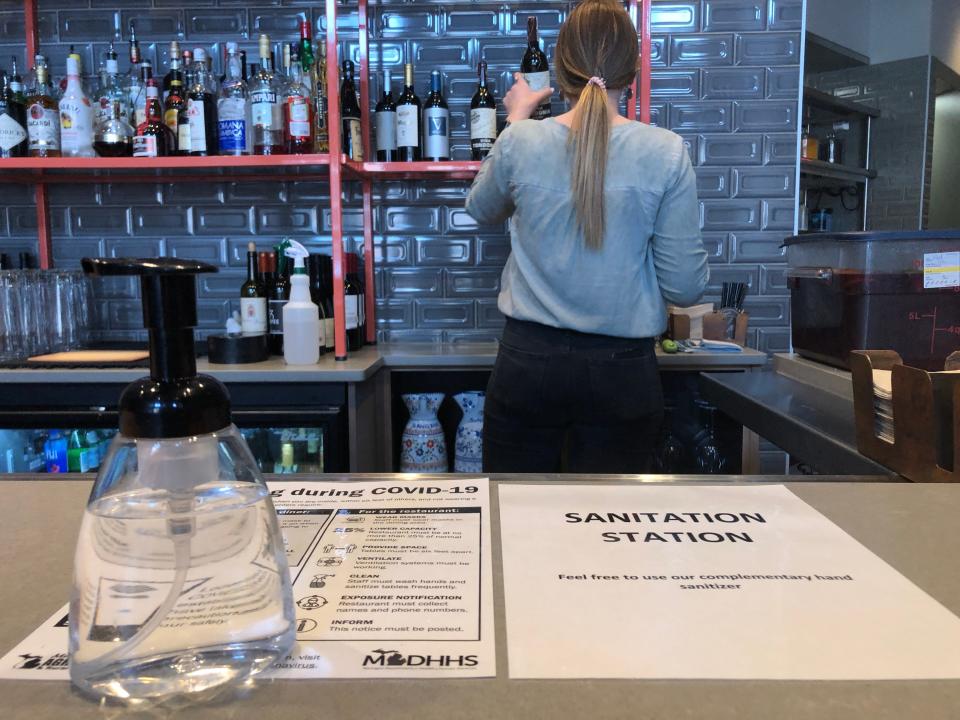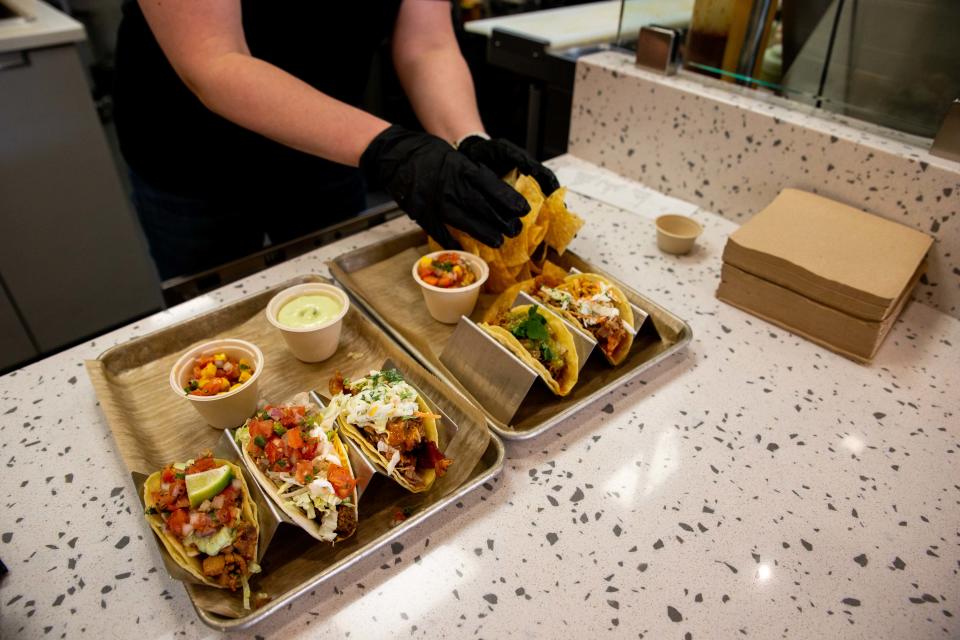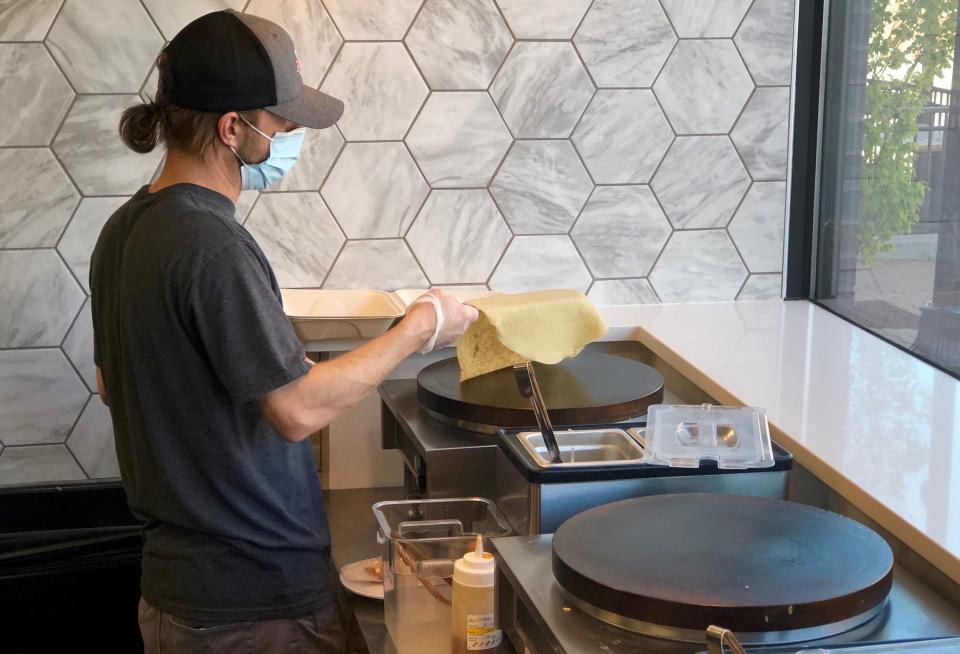After three years spinning their wheels, Michigan restauranteurs can't take much more
As the COVID-19 pandemic heads into year three, restaurants and other businesses in the hospitality industry continue to face uncertainty and weakened business conditions, causing many to close either temporarily or permanently.
While the pandemic impacted businesses across the globe in every industry, restaurants were hit particularly hard as they struggled to cope with ever-evolving restrictions and ongoing staffing issues.

Lucas Grill, owner of 1983 Restaurants — which operates Seventy-Six, Poquito and Obstacle No. 1 in downtown Holland — said his restaurants have felt the squeeze.
“The last two years in particular have been extremely challenging to say the least,” Grill said. “It really all started with the labor issue.”
Grill said potential workers are finding a better work/life balance in other industries — and better wages.
“Think about it, do you think you could live off $13 or $14 dollars an hour?” he said. “What happened really quickly during COVID is that employees realized they're worth more money if they're going to be working nights and weekends.”
In a recent survey exploring how current economic conditions and rising costs are impacting restaurant operations, the Michigan Restaurant and Lodging Association found that 93 percent of restaurants have job openings they've had trouble filling.

Meanwhile, 92 percent of restaurants said they'll likely hire additional employees in the next six months, and 73 percent said they don't have enough employees to support customer demand.
For Grill, employee attraction means offering a better overall work environment.
“If your business plan can’t afford to pay anyone livable wages, then you need to modify your business plan or you’re going to go out of business,” he said. “When the economy slows like it already has, things are going to get harder, people aren’t going to go out to eat as much and sales are going to go down.”
National statistics show just how much weaker restaurant conditions are from three years ago.
The National Restaurant Association reported that total industry sales in 2021 were $799 billion, down $65 billion from pre-pandemic levels. In that time, over 90,000 restaurants have temporarily or permanently closed.
Isabel’s Market and Eatery, located in Douglas, is a grocery store offering a menu of sandwiches, salads and baked goods — and it also offers cooking classes and catering.
But like so many businesses, these past few years have been difficult, as they deal with the rising cost of goods and struggle to maintain a staff necessary to operate year-round.
In a post to the company’s Facebook page this past week, the business said shortages in staff “forced overtime hours, prevented us from being able to open seven days a week, and, most importantly, required us to rely on friends and family to make up the gaps in labor. Bottom line — our team is exhausted.”
The company said an unexpected rise in food costs has handcuffed the business.
“We had a mission when we created Isabel’s to ensure that our selections were premium and homemade with the best ingredients,” the post said. “However, it is impossible to continue to pass these costs on to our customers and expect to maintain the level of business needed, especially in the cold winter months.”
Subscribe:Learn more about our latest subscription offers!
When it comes to food costs, 89 percent of operators said their total food and beverage costs are higher than in 2019, and 91 percent said the cost of supplies and other materials are more expensive, according to the MRLA.
It's no surprise, then, that 90 percent of operators said their restaurant is less profitable than in 2019.
Grill said restauranteurs have to adapt their menus to work around the rise in prices.
“We've changed our menu so many times,” he said. “We've kept some dishes the same but for other things, we've changed them to other dishes because you have to adapt or the restaurant is going to die.”
According to the National Restaurant Association, 46 percent of restaurant operators say business conditions are worse now than they were three months ago — and while wholesale food prices have increased 16.3 percent in the last 12 months, menu prices have only risen 7.6 percent.

“Consumers are watching prices rise faster in grocery stores than they are in restaurants and see an increased value in spending their food dollars in restaurants,” said Michelle Korsmo, president and CEO of the NRA. “However, moderate menu price increases aren’t balancing the surging input costs and this is forcing operators to cut hours, change their menus, postpone expansions, and reduce third-party delivery.”
Across the state in East Tawas, Route 23 BBQ only has a few months left — unless someone chooses to invest in the business.
Route 23 was opened in 2019 by Matthew and Angela Barnett. In October 2020, Angela passed away suddenly, leaving the business to her husband.
This was in the early stages of the COVID-19 pandemic, when restaurants were just reopening with limited capacity and under strict health conditions. On top of that, the pandemic sparked supply-chain struggles that continue to be an issue for the business.
According to Matthew, this summer saw a significant drop in traffic, all while he's spending more than ever on food and other materials. In the first week of September, sales dropped 50 percent compared to the previous year, a loss of about $10,000.
In response to the struggles, Matthew has raised prices and limited restaurant hours to four days per week to accommodate the staff.
“(Our) prices have gone up but I haven't increased them a second time," he said. "I should have increased another 10 percent but because of the area I can't do that, (customers) don't take too kindly to that.”
Matthew listed Route 23 for sale two months ago in hopes of finding someone to buy into the business as a partner, so he and his staff can remain.
“We’re trying to play catch up and right now, the economy being the way that it is, we can't," he said. "People aren’t spending money like they used to. Gas prices are up, food costs are up, people are tightening up. People are putting money away."
But still, Matthew hopes someone will come through for Route 23.
“The staff would love to stay on (and) I want to stay on too," he said. "I’d like to stay here and cook and keep it going. I just cannot afford to do it on my own anymore. I don't have the money.”
— Contact reporters Austin Metz and Tess Ware at newsroom@hollandsentinel.com.
This article originally appeared on The Holland Sentinel: After three years spinning their wheels, Michigan restauranteurs can't take much more
